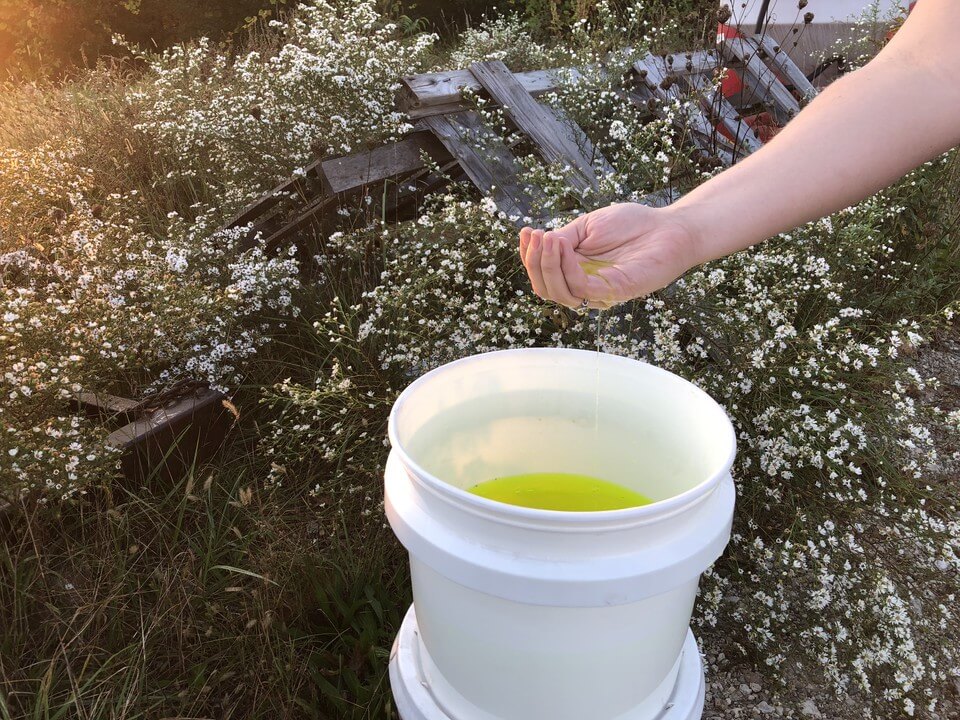Is Glycol-Based Construction Heating Equipment Safe?
Posted by Matt Milos on Oct 17th 2018

Safer and cleaner buildings are no longer just an end goal, they are part of the entire construction process. An area where this change is abundantly clear is the movement towards safer construction heating equipment like hydronic systems. Hydronic systems pump hot glycol to the work area, where low-powered exchangers then expel heat into the structure. The glycol mix then returns to the heating unit where it is reheated (if necessary) and sent back out to start the cycle again. This process not only saves fuel but also keeps CO and CO2 fumes outside the workplace and away from personnel. In short, hydronic heating is a safer alternative for construction heating equipment and is more efficient than traditional methods.

Hydronic heat uses hot glycol to efficiently move heat around the job site.
The follow-up question, then, is obvious: how safe is that glycol?

Dowfrost SDS Sheet.
When most people hear the word they think of vehicle anti-freeze. What most people don't know, however, is that there are several types of glycol solutions on the market, each with a specific result in mind. The glycol mix in a hydronic system is Dowfrost Heat Transfer Fluid, a propylene glycol. Here's some information from the SDS sheet:
Recommended use of the chemical and restrictions on use
Identified uses: Intended as a heat transfer fluid for closed-loop systems. This product is acceptable for use where there is possibility of incidental food contact and as a product for use in the immersion or spray freezing of wrapped meat and packaged poultry products. We recommend that you use this product in a manner consistent with the listed use. If your intended use is not consistent with the stated use, please contact your sales or technical service representative.
It's worth noting that this glycol is safe for "incidental food contact." This is no mean feat considering the strictness of USDA restrictions.
I did some more digging, and it turns out that propylene glycol is in many products we use every day. From hand creams to shampoos, chances are you frequently encounter it. In fact, some companies tout it as a key ingredient in their products. The Lush Fresh Handmade Cosmetics Company states the following on their website:

LUSH Cosmetics uses propylene glycol and does not try to hide the fact.
INGREDIENT
Propylene Glycol
A safe, vegetable-based synthetic
A highly effective humectant, propylene glycol helps the skin and hair absorb and retain moisture. It also absorbs excess water in a formula, reducing bacteria growth to help your products last longer. In haircare products, it softens the hair and makes it easy to comb through.
This clear, syrupy liquid has no color, odor or taste, and is derived from vegetable oils like rapeseed or coconut. It's a synthetic liquid that's completely soluble in water, so it helps skin retain moisture.
Again directly from the SDS sheet:
Description of first aid measures
Inhalation: Move person to fresh air; if effects occur, consult a physician.
Skin contact: Wash off with plenty of water.
Eye contact: Flush eyes thoroughly with water for several minutes. Remove contact lenses after the initial 1-2 minutes and continue flushing for several additional minutes. If effects occur, consult a physician, preferably an ophthalmologist.
Ingestion: No emergency medical treatment necessary.

Propylene glycol, like all chemicals, should be treated with care, but it is safer by far than most other chemicals on construction sites.
Notice that these emergency instructions are no different than those for chemicals you use at home. In fact, you might say they are less serious than those for many household cleaners.
A glycol system is without a doubt the safest construction heating equipment available.
The hoses that carry this solution are 300 psi, near puncture-proof, and are most often placed well out of the way. Each hose attaches to the next through a quick coupling system, so even in the unlikely event of a puncture only the damaged hoses's glycol can escape. In most cases this means only 5 gallons of glycol will leak out and, as listed above, this requires only water to clean up. No matter how you look at it, a hydronic system is miles ahead of competition like open-flame and indirect-fired heat. Heck, your workers might even be routing for an unlikely accident so they have a chance at softer skin.

